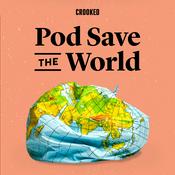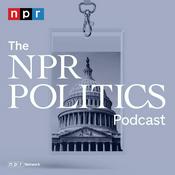1439 Episoden
- From TikTok and Instagram influencers to celebrities like Hugh Jackman and Kourtney Kardashian, intermittent fasting has gotten a lot of hype. The diet restricts what time you eat rather than what or how much you eat. The idea is that short periods of fasting cause your body to burn through stored fat reserves. But is that conventional wisdom true? And can it really contribute to weight loss? Regina G. Barber and Rachel Carlson tackle those questions — plus why some researchers are rethinking how to protect people's mental health when talking to chatbots and how ultra-endurance running changes the human body.
Have a scientific question you want us to answer? Email us your question at [email protected].
Listen to every episode of Short Wave sponsor-free and support our work at NPR by signing up for Short Wave+ at plus.npr.org/shortwave.
Learn more about sponsor message choices: podcastchoices.com/adchoices
NPR Privacy Policy - The 2026 Winter Olympics are unfolding in Milan and Cortina, and we can’t look away: We’re watching athletes fly down mountains on skis and glide — sometimes slipping and falling — on the ice. Vikram Chib studies performance and how the brain responds to rewards at Johns Hopkins University. And he says rewards aren’t just for Olympians; they’re baked into basically everything humans do. But those rewards and the pressure that comes with them can come at a cost to people’s brains. And even Olympians are human. Sometimes, we crack. So, today, Vikram dives into the science behind choking under pressure.
Interested in more Olympics science? Email us your question at [email protected] – we may cover it in a future episode!
Listen to every episode of Short Wave sponsor-free and support our work at NPR by signing up for Short Wave+ at plus.npr.org/shortwave.
Learn more about sponsor message choices: podcastchoices.com/adchoices
NPR Privacy Policy - Picture this: You’re at a pretend tea party, but instead of sitting across from toddlers in tiaras, you’re clinking cups with Kanzi—an ape with the incredible ability to communicate with humans. NPR science correspondent Nate Rott talked to some scientists who did exactly that. But these scientists weren’t just having pretend tea parties with Kanzi for fun, they were trying to test the limits of his imagination – because humans’ ability to play out “pretend” scenarios in our heads and guess at the potential consequences of our actions is key to how we live our lives. And we might not be the only animals to do it!
For more of Nate’s reporting, plus videos of Kanzi, check out the full story on NPR here. Chris Krupenye’s study can be found here.
If you liked this episode, you might also like our episode on bonobos and the evolution of niceness, and what insights monkeys offer us for the evolution of human speech.
Interested in more science about our brains and their abilities? Email us your question at [email protected].
Listen to every episode of Short Wave sponsor-free and support our work at NPR by signing up for Short Wave+ at plus.npr.org/shortwave.
Learn more about sponsor message choices: podcastchoices.com/adchoices
NPR Privacy Policy - Early last year, a hundred researchers, clinicians and other experts on HIV discussed the development of an innovative vaccine that could prevent the disease. But just as the meeting was about to wrap up, the mood darkened. A new executive order signed by President Trump on Inauguration day had frozen all foreign aid, pending a review. Soon, DOGE would begin its decimation of USAID — and with it, this vaccine trial. That is – until the South African researchers came up with a new plan.
Read more of freelance science reporter Ari Daniel’s story here.
This story was supported by a grant from the Pulitzer Center.
Interested in more on the future of science? Email us your question at [email protected].
Listen to every episode of Short Wave sponsor-free and support our work at NPR by signing up for Short Wave+ at plus.npr.org/shortwave.
Learn more about sponsor message choices: podcastchoices.com/adchoices
NPR Privacy Policy - The evolutionary purpose of kissing has long eluded scientists. Smooching is risky, given things like pointy teeth, and inherently gross, given an estimated 80 million bacteria are transferred in a 10 second kiss. And yet, from polar bears to humans, albatrosses and prairie dogs, many animals kiss. So, what gives? Evolutionary biologist Matilda Brindle tells us the sordid details driving this behavior, what distinguishes different kinds of kissing and whether culture has anything to do with why people kiss.
Interested in more of the science behind love and connection? Email us your question at [email protected].
Listen to every episode of Short Wave sponsor-free and support our work at NPR by signing up for Short Wave+ at plus.npr.org/shortwave.
Learn more about sponsor message choices: podcastchoices.com/adchoices
NPR Privacy Policy
Weitere Nachrichten Podcasts
Trending Nachrichten Podcasts
Über Short Wave
New discoveries, everyday mysteries, and the science behind the headlines — in just under 15 minutes. It's science for everyone, using a lot of creativity and a little humor. Join hosts Emily Kwong and Regina Barber for science on a different wavelength.If you're hooked, try Short Wave Plus. Your subscription supports the show and unlocks a sponsor-free feed. Learn more at plus.npr.org/shortwave
Podcast-WebsiteHöre Short Wave, Apokalypse & Filterkaffee und viele andere Podcasts aus aller Welt mit der radio.de-App

Hol dir die kostenlose radio.de App
- Sender und Podcasts favorisieren
- Streamen via Wifi oder Bluetooth
- Unterstützt Carplay & Android Auto
- viele weitere App Funktionen
Hol dir die kostenlose radio.de App
- Sender und Podcasts favorisieren
- Streamen via Wifi oder Bluetooth
- Unterstützt Carplay & Android Auto
- viele weitere App Funktionen


Short Wave
Code scannen,
App laden,
loshören.
App laden,
loshören.












































